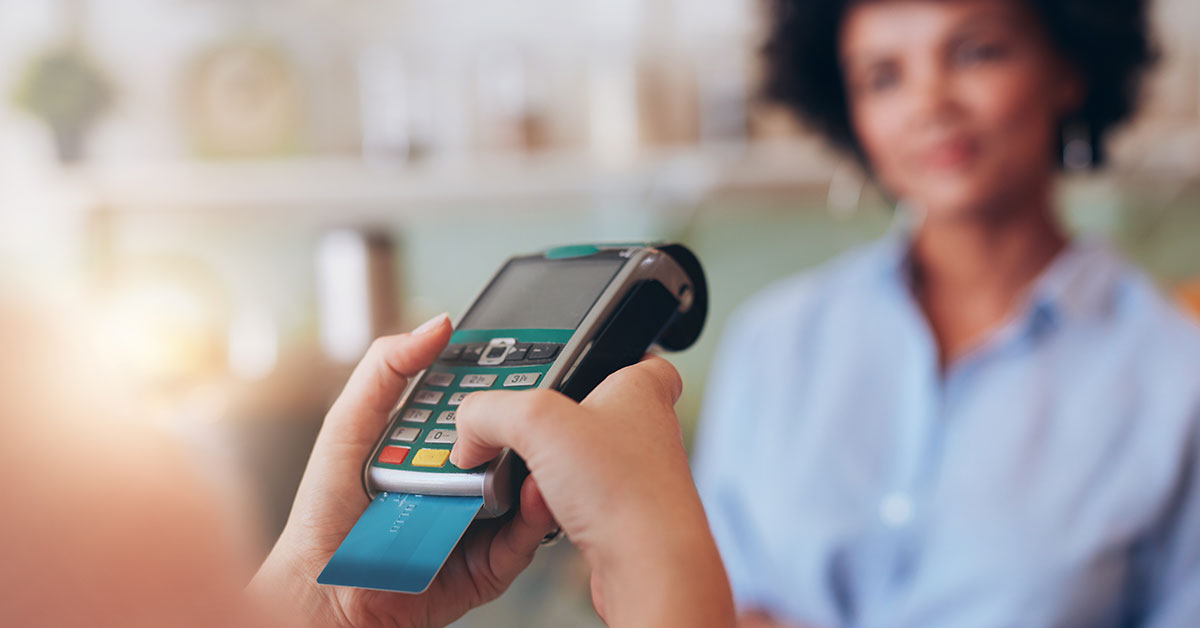
How Much Does Credit Card Usage Affect My Credit Score?
When it comes to your credit score, we cannot overstate the impact of your credit card usage—especially your credit card utilization. But what exactly is credit card utilization, and why does it matter? Credit card utilization refers to the percentage of your available credit that you're currently using. It's a key factor in determining your credit score, with a high ratio potentially dragging your score down and making it more difficult to qualify for additional credit. In this article, we'll delve into how credit card usage directly correlates with your credit score, and practical advice you can use to maintain a healthy utilization ratio. Let's get started!
What Makes Up a Credit Score
Understanding what makes up your credit score is essential for managing your finances effectively and maintaining a healthy credit profile. Your credit score is a three-digit number that shows lenders how reliable you are with credit. Several factors go into calculating this score, each playing a different role. By knowing what these components are, you can take steps to improve and maintain a good credit score.
Payment History
This is one of the most crucial parts of your credit score, making up about 35% of it. Lenders want to know if you pay your bills on time, as this shows your ability to manage credit responsibly. Late payments, defaults, and bankruptcies can seriously damage your score. To keep this part of your score strong, always try to pay your bills on time every month.
Credit Utilization
Another significant factor is your credit utilization, which accounts for about 30% of your credit score. This refers to the percentage of your available credit that you're using. Ideally, you want to keep this ratio below 30%. For example, if you have a total credit limit of $10,000, you should aim to keep your balances under $3,000. High utilization can make you look like a risky borrower to lenders.
Length of Credit History
The length of your credit history contributes around 15% to your score. This includes how long your oldest account has been open, the age of your newest account, and the average age of all your accounts. Generally, the longer your credit history, the better. So, even if you're not using an old account, it can be helpful to keep it open to show a longer history.
Types of Credit in Use
Having a mix of different types of credit accounts makes up about 10% of your credit score. This includes credit cards, retail accounts, installment loans, and mortgages. Showing that you can manage different types of credit responsibly can positively impact your score.
New Credit
New credit accounts for about 10% of your score. This looks at how many new accounts you’ve opened recently and the number of hard inquiries from lenders. Opening several new accounts in a short time can lower your score temporarily, as it might indicate that you’re taking on too much new debt at once. It’s best to space out new credit applications and only apply when you really need to.
What is Credit Utilization?
Credit utilization is simply the percentage of your available credit that you're actually using. This ratio is an important indicator of how responsibly you manage your credit. Lenders view a lower ratio as a positive sign, indicating that you're not overly reliant on credit.
To figure out your credit utilization ratio, you take your total credit card balances and divide that by your total credit limits. Then, you multiply that number by 100 to get the percentage. Let's say you've got a credit card with a $1,000 limit, and you've got a balance of $300 on it. That means your credit utilization ratio is 30%.

How Does Credit Card Usage Affect My Credit Score?
Your credit card usage directly affects your credit utilization, which plays a big role in determining your credit score. Depending on the scoring model, this factor can account up to 30% of your score. So, when your credit card balances are high compared to your credit limits, it can drag your score down. That's why it's so important to keep your credit utilization in check.
Having high utilization on just one credit card can especially hurt your score, particularly if you have a short credit history or only a few credit accounts. Lenders see high utilization as a red flag, suggesting you might be stretched too thin and at a higher risk of missing payments. Your credit utilization ratio directly impacts your credit score and tells lenders how creditworthy you are, which affects your ability to get credit and good interest rates. Keeping that ratio low is key to maintaining a healthy credit score and securing better credit terms.
What is a Good Credit Utilization Ratio?
A good rule of thumb is to use less than 30% of your available credit to keep your credit score in good shape. So, if you have a total credit limit of $10,000, try to keep your balances below $3,000. Some experts suggest aiming even lower, around a single-digit percentage. People with perfect credit scores often have about 6% utilization, which shows that keeping your utilization ratio low is key to maintaining an excellent credit score.
In general, lower credit card balances compared to your limits are better for your score. High ratios, like 50%, 70%, or even 90%, can really hurt your score by indicating to lenders that you might be overextended and at higher risk of missing payments.
Tips for Managing Credit Card Usage
1. Make Your Payments on Time to Boost Credit Score
It's super important to pay your credit card bills on time to keep your credit utilization in check. Timely payments show that you're responsible with your credit, which can boost your credit score.
2. Don't Close Those Cards
Resist the temptation to close a credit card because it can actually increase your overall credit card usage. For example, if you have two cards with a $1,000 limit each and you owe $500 on one, closing a card could double your usage from 25% to 50%.
3. Ask for More Credit
If you're looking to lower your credit card usage, consider asking your card issuer to increase your credit limit. This move can help decrease your utilization ratio.
4. Split Your Payments
Try making credit card payments more than once a month if you can. This trick can keep your balances lower throughout the billing cycle, which is good for your credit utilization ratio.
5. Set Up Auto-Pay
Auto-pay is your best friend for never missing a payment. It ensures you keep a great payment history and manage your credit effectively.
6. Spread Usage Across Multiple Cards to Help Credit Score
Using multiple cards and spreading your charges out can be better for your credit score. It's smarter to have a few cards with lower usage rates than one card maxed out, as this can positively affect your credit score.
7. Keep an Eye on Your Credit Usage
Regularly check your credit utilization to know how much of your available credit you're using. This awareness helps you tweak things to maintain a healthy usage ratio.
8. Clear Those Balances Fully
Whenever possible, aim to pay off your credit card balances in full every month. This not only helps with managing your credit usage but also saves you from paying unnecessary interest fees.
9. Spend Your Credit Wisely
Be mindful of when and how you use your credit cards. Avoid overspending or charging more than you can handle paying off to keep your credit usage in check.
10. Easy on the New Accounts
Opening too many new credit accounts in a short time can hurt your credit score. It's wise to space out new account openings to keep your credit profile stable.
The Bottom Line
Remember that how you use your credit cards has a big impact on your credit scores, especially when it comes to how much credit you're using and if you're making payments on time. To keep your credit in good shape, aim to keep your balances low, pay your bills on time, and develop smart habits like paying off your balances every month, using credit wisely, and avoiding unnecessary debt.
If you ever feel overwhelmed or need personalized advice, Community First Credit Union is here to help. Give our dedicated Member Experience Center a call at 904.354.8537 for tailored assistance with any of your financial needs.
More You Should Know About Credit Cards
| Credit Card Usage & Your Credit Score | What Is a Good Utilization Ratio? |
| Personal Loan vs Credit Card | How to Tackle Credit Card Debt |
| Credit Union Credit Cards | Credit Card APR |









